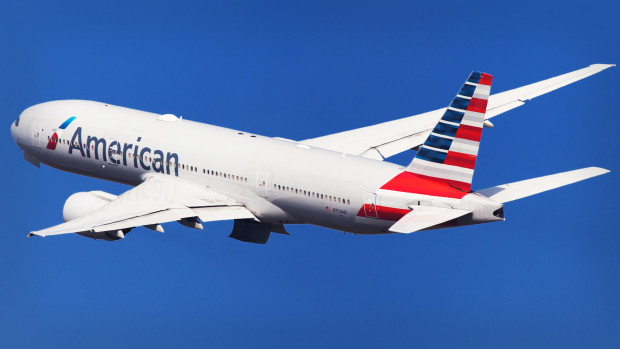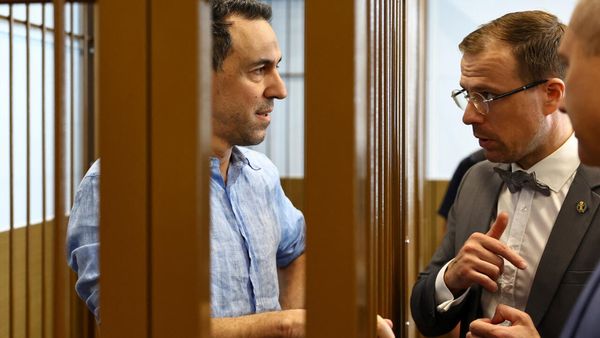
Consumers may be pinching pennies regarding some discretionary purchases, but budget tightening hasn't derailed interest in air travel yet.
Last year, U.S. airlines carried 194 million more passengers than in 2021, up 30%, according to the Bureau of Transportation. Growth has slowed, but the number of people boarding planes was still up by a double-digit percentage in the 12 months through May.
Those figures are impressive, but air travel could hit a speed bump in the wake of higher pay for pilots.

Image source: Shutterstock
Airline pilots ink a big pay deal
Airline pilots' pay got paused because of covid-era lockdowns. Now, workers facing higher inflation are seeing their wages play catch up.
American Airlines Group (AAL) -) pilots are the latest airline workers to get a pay bump. According to the American Pilots Association, 72% of American Airlines' pilots agreed to a new contract with an immediate 21% pay increase.
The four-year contract also includes a pay raise of 5% in 2024, 4% in 2025 and 2026, and 3% in 2027. Overall, pilot compensation will rise by 46% during the contract period.
DON'T MISS: American Airlines has a terrible secret policy you need to know
It's not just American pilots that are seeing wages increase. In July, United Airlines (UAL) -) pilots agree to a new contract that will see their pay increase by up to 40% over the next four years, including an immediate pay increase of as much as 18.7%.
Delta Air Lines (DAL) -) pilots will similarly see their wages increase by 34% by 2026, thanks to a contract signed in March.
Higher costs could mean higher airplane ticket prices
Pilots deserve top dollar, but these new contracts won't be cheap. The Delta Air Lines contract is valued at $7.2 billion. The United Air and American Airlines contracts are each worth about $10 billion.
More Travel:
- A new travel term is taking over the internet (and reaching airlines and hotels)
- The 10 best airline stocks to buy now
- Airlines see a new kind of traveler at the front of the plane
At least some of these increases will likely be passed along to travelers through higher ticket prices. If so, that could mean trouble for cash-strapped consumers.
"I think it is somewhat naïve to think corporations will not try to put all of this through to price," says Real Money Pro's Doug Kass. "A lot of industries are very consolidated. Most executives have their comp highly weighted to their stock price. Even worse, in the case of flying, ticket prices will go way up, and the airports will still be a disaster."
Higher compensation costs could also force airlines to revamp their guidance, disappointing shareholders. For example, American Airlines says its unit costs will rise 4% to 6% from last year, above the previous 2% to 4% estimates.
If ticket prices don't increase to cover higher salaries, airlines must absorb the additional costs, reducing profitability. That could be tough, particularly if other airline workers, including flight attendants, secure big pay increases.
American Airlines' 26,000 flight attendants are holding a vote to decide whether to strike. The vote is expected to continue through Aug. 29. Reportedly, they're seeking a 35% pay hike plus additional benefits. If they strike, higher ticket prices could be the least of travelers' worries.
For now, airlines can foot the bill, given record profits. United Air reported a record $5.03 per share in profits last quarter, and Wall Street expects it will earn $11.09 per share in 2023. American Airlines is expected to earn $3.30 per share this year, up from $0.50 in 2022.
However, any worsening of the economy could change that, leaving it up to travelers to bridge the gap.







